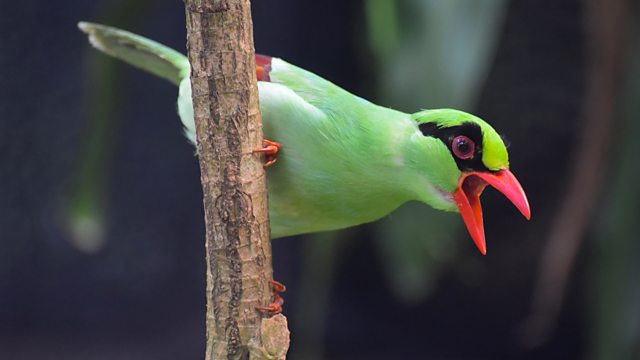The Silent Forest - Part One
The local people of rainforests of South-east Asia resisting destruction of their forests.
It is Saturday morning in Pontianak in West Kalimantan in Indonesia, at a songbird competition. In every district across Indonesia you’ll find these, large and small. Here there are 60 cages hung up above head height under the corrugated metal ceiling of an open sided building. It is hot here, right on the equator, and over 100 young men are cheering and shouting, focussed, on their birds, and on winning. It sounds like a boxing match with added birds singing at the tops of their voices.
This passion for birdsong has swept the country since it was encouraged in the 1970s, by a government keen to build a new leisure activity for Indonesians. No one could have predicted how out of hand it could get. What was once a solitary and poetic pastime, having a songbird in your house or garden, has become an industry in which real money can be made by training a winning bird. It is known here as chirping mania and is one of the biggest threats to Indonesia’s forests which have gradually fallen silent as millions of birds every year are trapped and sold illegally. Can the forest survive without birds?
And we take a look at the Pangolin - a weird small solitary nocturnal armour-plated ant eating mammal. It is the most trafficked animal on earth.
It is highly prized for it’s poor quality meat, which will cost you $350 a kilo in a Hanoi restaurant, and the powdered residue of it’s roasted scales, (that armour plating.) Why?
Pangolin are sold (always illegally) by weight. Their perfect protection against all predators except man is to curl up in a tight impenetrable ball. Lions and tigers simply cannot prise them open. A man just picks them up and carries them off in a plastic bag. Then water is injected beneath the scales, and a mixture of water and cornstarch is forcefed into their stomachs followed by stones. Having increased their value by as much as a third, bloated and dying, they are transported by the ton and sold alive both locally and to the huge market in China.
Gretchen Miller and Neil Trevithick talk to the people rescuing and trying to heal injured pangolin before releasing them (secretly) back into the wild, to traditional medical practitioners, vets and villagers. And we ask why does it matter if the pangolin becomes extinct, as it surely will, in Asia.
(Photo: Javan Green Magpie. Credit: Jonathan Beilby)
Last on
More episodes
Previous
You are at the first episode
Broadcasts
- Sun 24 Sep 2017 03:06GMTΒι¶ΉΤΌΕΔ World Service except News Internet
- Sun 24 Sep 2017 13:06GMTΒι¶ΉΤΌΕΔ World Service except News Internet
- Wed 27 Sep 2017 08:06GMTΒι¶ΉΤΌΕΔ World Service except News Internet
- Wed 27 Sep 2017 17:06GMTΒι¶ΉΤΌΕΔ World Service Australasia
- Wed 27 Sep 2017 23:06GMTΒι¶ΉΤΌΕΔ World Service except News Internet
Featured in...
![]()
Amazing long listens from 2017—The Documentary
A global sweep of some of the most powerful stories from the year


